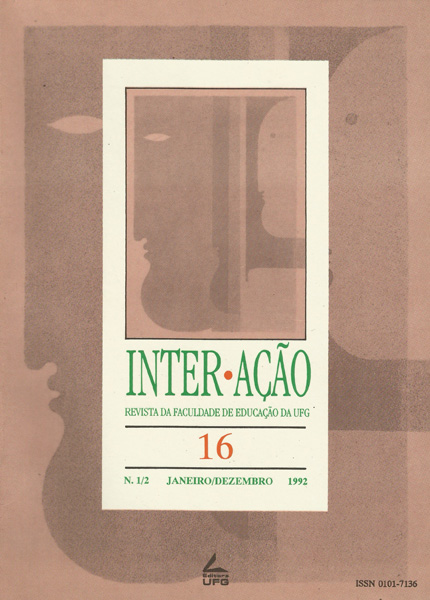FORMAÇÃO DO PROFESSOR E QUALIDADE DO ENSINO
DOI :
https://doi.org/10.5216/ia.v16i1/2.55205Résumé
Embora a correlação entre a má formação de professores e a queda da qualidade do ensino público possa ser estabelecida a partir de dados da realidade educacional brasileira, tanto uma como outra são produção de políticas públicas que, insistindo em não considerar a educação como prioridade governamental, realizaram a expansão das oportunidades educacionais a baixo custo, ensejando o ingresso das camadas populares na escola pública, sem, no entanto, implementar as medidas que, em consequência, seriam necessárias para manter a qualidade do ensino, imputando àquelas camadas a responsabilidade pelo seu fracasso. Assim, a recuperação da qualidade do ensino é uma questão de reversão das políticas públicas no sentido de priorizar o atendimento das necessidades dos setores majoritários da sociedade, dentre elas, uma educação de qualidade. Dentre as medidas específicas para a recuperação dessa qualidade, ressalta-se a valorização do magistério como profissão, através da criação, na universidade, de um centro de formação de professores que supere a fragmentação que caracteriza os atuais cursos de licenciatura.Téléchargements
Téléchargements
Publié-e
Comment citer
Numéro
Rubrique
Licence
A Inter-Ação utiliza como base para transferência de direitos a licença Creative Commons Attribution 4.0 para periódicos de acesso aberto (Open Archives Iniciative - OAI). Por acesso aberto entende-se a disponibilização gratuita na Internet, para que os usuários possam ler, baixar, copiar, distribuir, imprimir, pesquisar ou referenciar o texto integral dos documentos, processá-los para indexação, utilizá-los como dados de entrada de programas para softwares, ou usá-los para qualquer outro propósito legal, sem barreira financeira, legal ou técnica.
Autores que publicam neste periódico concordam com os seguintes termos:
1) Autores mantém os direitos autorais e concedem à revista o direito de primeira publicação, com o trabalho simultaneamente licenciado sob a Licença Creative Commons Attribution que permite o compartilhamento do trabalho com reconhecimento da autoria e publicação inicial nesta revista.
2) Autores têm autorização para assumir contratos adicionais separadamente, para distribuição não-exclusiva da versão do trabalho publicada nesta revista (ex.: publicar em repositório institucional ou como capítulo de livro), com reconhecimento de autoria e publicação inicial nesta revista.
3) Autores têm permissão e são estimulados a publicar e distribuir seu trabalho online (ex.: em repositórios institucionais ou na sua página pessoal) a qualquer ponto antes ou durante o processo editorial, já que isso pode gerar alterações produtivas, bem como aumentar o impacto e a citação do trabalho publicado.















